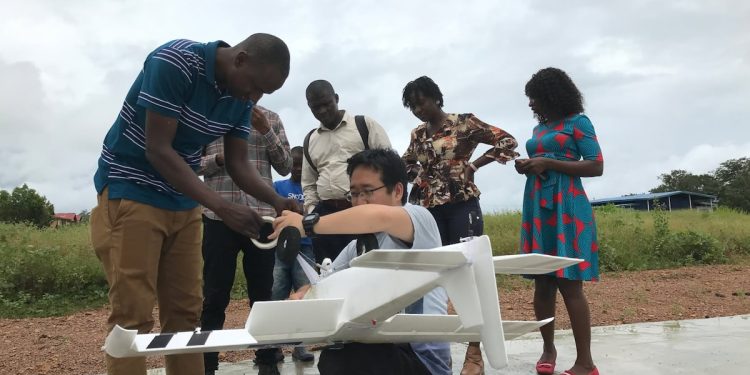Japanese drone company SORA Technology is expanding to 15 African countries, including Nigeria, in a major effort to fight malaria. Starting August 25, its AI-powered drones will begin scanning high-risk zones, identifying mosquito breeding sites, and spraying larvicides with precision.
The firm says this approach reduces chemical use by 70% and cuts operational costs in half. Africa bears over 90% of global malaria cases and loses around $12 billion yearly to the disease. With mosquitoes adapting to traditional controls, smarter tools are urgently needed.
SORA’s method—Larval Source Management (LSM)—uses fixed-wing drones equipped with AI cameras to scan swamps, farms, and riverbanks. The system maps and ranks high-risk sites before spraying targeted areas.
“We use two types of AI,” said CEO Yosuke Kaneko. “Imaging AI helps us find and map mosquito breeding sites, while deep learning helps us rank which ones pose the highest risk.”
SORA is already active in countries like Ghana and Sierra Leone. The company now plans to reach 100,000 people across Africa by year-end. It will also launch a malaria-focused drone and build a local assembly plant to scale operations.
SORA’s work goes beyond malaria. Its drones support agriculture, healthcare, and logistics across Africa and Asia.
Though often compared to Zipline Africa, which specializes in medical deliveries, SORA takes a broader public health approach. Kaneko sees Zipline as a potential partner, not a rival.
African governments have long been interested in drone tech but lacked access, Kaneko said. “That’s the gap we are helping to close.”
With climate change expanding mosquito habitats, SORA’s precision-driven model may offer one of the most scalable defenses yet.
























































